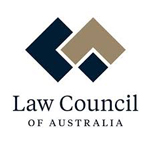
How Lawyers Charge
There can be large differences between law firms and what and how they charge for family law cases. At Gordon Lawyers, we are re-writing the book on legal fees and do not charge many typical costs. On this page where there is this symbol Gordon Lawyers do not follow the usual practice. See HERE for more on what Gordon Lawyers do and do not charge.
Fair and Reasonable
The charges by a solicitor need to be “fair and reasonable”. But what is fair and reasonable is not defined by the rules governing lawyers.
Types of Legal Costs
There are a number of types of legal costs….
Time of your Solicitor – this is the cost of the time spent by your lawyer on your matter. Usually this will form most of the legal bill
Lawyers charge for things like;
- Appointments with client's
- Telephone calls
- Letters and emails (sending and receiving)
- Reviewing and preparing documents
- Appearing in Court
Time of other legal staff – some (most) law firms also charge for the time spent by other staff in their office. How much and what is charged varies considerably between legal firms. Some legal firms charge for most time spent by support staff.
Gordon Lawyers do not charge for secretarial or administrative staff time. Gordon Lawyers do charge for genuine para-legal work, but at a greatly reduced rate.
Disbursements – these are charges made by third parties who are called on to assist in the case. Common examples are, valuation fees or title search fees. If there is Court action, there may be city agent’s and barrister’s fees. The client’s approval should be sought before a large cost is incurred.
Office Costs of Legal Firm – costs such as photocopying, sending or receiving faxes, printing, mail, telephone charges are some examples. Solicitors vary widely in how these are charged. Such costs can add considerably to a bill.
Some law firms charge a set percentage for “administration” costs.
Gordon Lawyers do not charge office or administration costs.
Court Fees – these are charges by the Family Court, such as a filing fee. They are listed on the Court's website. Some clients may be exempt from these fees. These fees are a small part of a client’s legal bill.
GST – GST will be added to lawyers’ fees. Some disbursements are GST free, such as Court fees.
The Hourly Rate
Most lawyers charge based on an hourly rate. Solicitors vary considerably in the hourly rate they charge.
Usually the more experienced solicitor in the same law firm will charge more than a junior solicitor, eg a partner will charge more than an associate, even if it is for the same work.
At Gordon Lawyers the hourly rates varies with the the importance of the work. So more routine tasks are charged at a lesser rate even if done by a senior solicitor.
The 6 minute Unit
Most lawyers divide their hourly rate into what is called 6 minute units. For example if a lawyer’s hourly rate is $300 per hour, one 6 minute unit is a $30 charge
While still largely used at Gordon Lawyers, some tasks are charged at a flat rate.
The problem with 6 minute Units…
If a solicitor spends 5 minutes on a case they will charge one unit which might be $30, if they spend 10 minutes on a case they will charge 2 units (ie 12 minutes) which would be $60. Put another way, the time spent is rounded up to the next unit.
The hourly rate and 6 minute unit is often criticised, not only for the practice of “rounding -up”, but also, it does not encourage efficiency nor take into account the value to the client of the work done, only the time spent. A solicitor will charge more if they spend more time on a case, rather than billing the client for the value or importance of the task to their case.
Gordon Lawyers round down to the nearest unit (minimum 1 unit). We know of no other law firm that does this. Gordon Lawyers is also moving away from the 6 minute unit, gradually introducing more fixed fees that give greater transparency and certainty in the charges.
Estimate of Fees - most important
Knowing a solicitor’s hourly rate is a poor guide to how much a case will cost.
Every solicitor needs to give their client an estimate of the likely fees and update these estimate as the matter progresses.
If an experienced lawyer is used, this estimate is a better guide of what it will cost than just looking at the hourly rate.
But it is an estimate and is not a fixed quote, so the charges can be more or less. But if it’s significantly more, then you can ask why.
What work is charged – caution needed
Many things happen in a lawyer’s office from reception to Court room. Some law firms, break-up every step needed in a task and charge for each part. This can significantly increase a legal bill.
This can result in two lawyers with the same hourly rate billing their clients vastly different amounts.
See HERE on how this can impact on a legal bill.
Gordon Lawyers do not do this. Gordon Lawyers charge for the legal task done, not the steps along the way or who may have been invoved.
Alternatives to the Hourly rate
There are alternatives to the hourly rate such as fixed or capped fees. Not many lawyers offer these in the area of Family Law.
Fixed Fees – very few firms offer fixed fees in family law. A problem with fixed fees is that if the matter settles early the client still pays the entire fixed fee even though the work was not needed.
Fixed fees can apply in divorce applications.
Cost Agreements & Disclosure
Each client needs to be given a detailed Cost Agreement and Disclosure document. These documents set out the charges and other costs issues.
These can be complicated and if you are not sure what they mean then ask.



 6492 3597
6492 3597 
 Located in Bega.
Located in Bega. 








